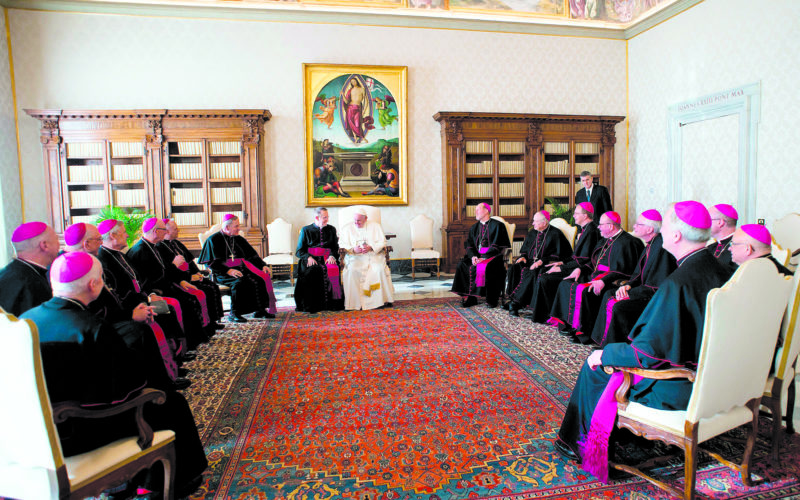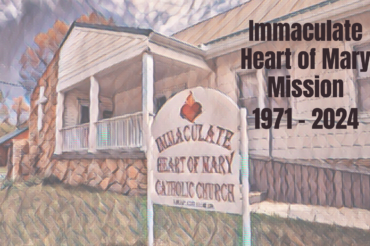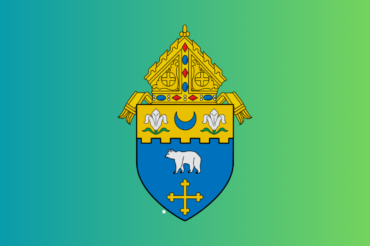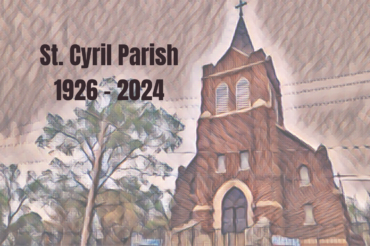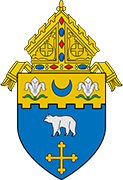Rome, Roots, and Our Story
“… you are Peter, and upon this rock I will build my Church, and the gates of Hell shall not prevail against it.” Matthew 16:18
Last week I was in Rome with the bishops of Region IX (Missouri, Kansas, Nebraska and Iowa) for what is known as the ad limina visit. The name comes from the Latin phrasing of “to the threshold,” since a central purpose of the visit is for each bishop to make a pilgrimage back to the thresholds of the tombs of the apostles Peter and Paul at least every five years. Along with the visit, the bishops meet with the various dicasteries of the Roman Curia, the central administrative offices and tribunals that assist the Pope in governance of the Universal Church, and of course, a visit with the Holy Father himself.
For me, the highlight of the visit came toward the end of the week. On Thursday we met for over 2 ½ hours with Pope Francis (more on this in a future column). We began the day with Mass in a crypt chapel in Saint Peter’s basilica known as “the altar of the Tomb” because it is next to the tomb of Peter, the apostle and first pope. The following day in the afternoon, as the last official event of our visit, we had Mass at the basilica dedicated to Saint Paul, at which I had the privilege of being the main celebrant and homilist. It happened by God’s good providence that the earthly remains of Saint Timothy had just arrived at Saint Paul’s for a special week related to the first Sunday of the Word of God, recently added to the liturgical calendar. What a special blessing it was to be there at that unique moment when relics of both Saints Paul and Timothy were present; Paul, the apostle and great missionary, and Timothy, the young bishop of Ephesus, to whom Paul addressed two of his epistles, now part of the New Testament.
I mention these profound moments because it is good to go back to your roots, which is why the Church mandates that the bishops make this periodic visit. It reminds us that we are not alone and isolated, but rather a part of an organic and spiritual unity which spans the vastness of time. The Church is a living reality which has its roots in Christ and His apostles. Connecting with one’s past, one’s roots, puts things in perspective, strengthens one’s resolve and identity, and inspires hope. I was reminded again of the great story of salvation history and that each of us has a role to play in it.
It occurred to me how important this is for not only bishops, but for all of us. Our lives become scattered and vulnerable if we forget our identity and lose our connections, not only with those around us now, but with those who have gone before us. Who we are is profoundly shaped by that organic tree which we are connected to in both our immediate family as well as our Church family—the family of God.
Roots are important. I remember when a friend of mine decided to build a house. The land upon which the house was to be built was filled with many large, beautiful hardwood trees, which was why the friend had purchased the lot. Before construction commenced, the workers were instructed to place fencing in a wide circle around the trees so that their roots would not be damaged by the heavy machinery and foot traffic during the building process. I noticed other lots in which this had not been done and the trees were in the process of dying.
It serves as an image for our own lives: if we are cut off from our roots, we suffer. That is why it is important, especially with our children and youth, to know our own story. Most importantly to know that we are a part of a great story which stretches back to Our Lord Jesus and the Church He founded, and even beyond into the story of chosen people of Israel. It is the story of salvation history, and we are all a part of it! To lose that story is devastating; to know that story and my place in it is a treasure that carries us through the ups and downs of life! Roots are important.
+James V. Johnston, Jr.
Bishop of Kansas City-St. Joseph
Catholic Key, January 24, 2020 issue

